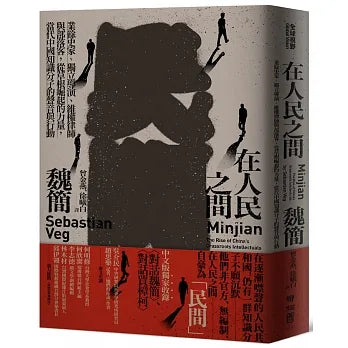在逐漸噤聲的人民共和國,仍有一群知識分子不願沉默他們非官方、無編制、在人民之間——自豪為「民間」
★中文版獨家收錄〈對話魏簡〉、〈對話賈樟柯〉★
★中文版獨家收錄〈對話魏簡〉、〈對話賈樟柯〉★
在一九八九年民主運動受挫,一九九二年經濟改革重啟之後,一種新型態的草根知識有別於退縮於傳統領域的文人,他們積極與弱勢和邊緣群體合作;有他們強烈反對菁英修辭。他們非官方、無編制、在人民之間。
本書刻畫了一群深刻改變中國公共文化的草根思想-行動者,包括質疑官方說法的業餘史家、讓人民說話的獨立導演,以及分享實用知識的維權律師與NGO工作者等。他們開拓學術界與政府機構之外的新興公共領於具體而嚴峻的現實問題:毛以及沒有居住許可證的上訪者們。
魏簡深入當代中國社會表層下的變革伏流,分析民間知識分子的公共話語、介入行動和知識生產,將長期位於權力邊緣的草根知識分子群體——特別是女性知識分子——帶到中國思想史的版圖之中。
在威權國度的陰影下,深刻改變中國社會的知識力量!
業餘史家——楊繼繩退休後開始搜集關於大飢荒和文革的非官方檔案,二〇 〇八年在香港出版著作《墓碑》。「來自全國各地的大量給我以堅定而熱情地支持。這說明,真相有政權力構築的銅墻鐵壁!」
獨立導演——賈樟柯在體制外拍攝電影的第一代導演,專注於被主流忽視的題材。「我一直反感那種莫名其妙的職業優越感,而業餘精神中則包含著平等與公正,以及對命運的關注和對普通人的體恤之情。」
維權律師——許志永在孫志剛案、公盟創立與訪民議題上發揮重要作用,後因新公民運動而被捕入獄。「我有能力在這個體制中過上優越的生活,但是,任何的特權都會讓我感到羞恥。我選擇站在無權無勢者一邊,一起感一起承受黑監獄的野蠻暴力。」
部落客——韓寒高中肄業後成為暢銷小說家與賽車手,常對政治議題發表評論。「我很討厭政治,我很熱愛文藝。只是我不喜歡我所熱愛的文藝被我所討厭的政治所妨礙。」
